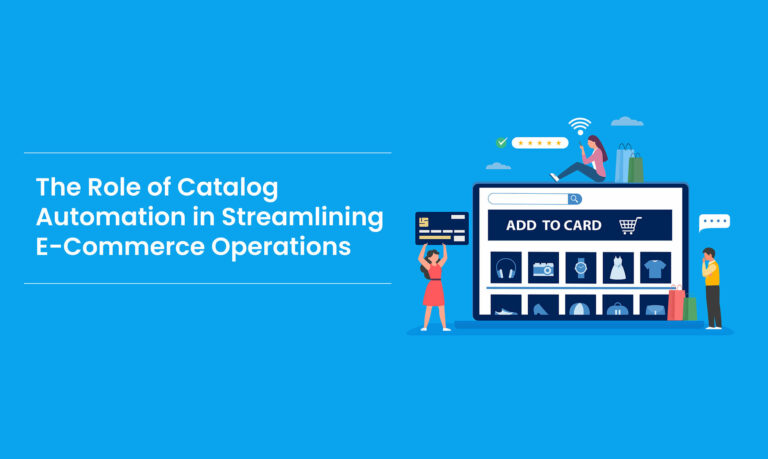One of the most alluring future trends that India is likely to witness is voice shopping. Voice shopping will play a significant role in localizing an online e-commerce business. Using your native language can help them understand you better, making shopping as simple as conversing with a buddy. Virtual reality (VR) and augmented reality (AR) are two exciting new technologies that will revolutionize online shopping. Consider digitally putting items on before purchasing them; it’s like having a try-on experience without ever leaving your house!
Computers are getting super smart; soon, they’ll know your shopping style better than you do! They’ll suggest things you might love based on what you’ve bought before and make sure your favorite stuff is always available. It’s like having a personal shopping assistant that gets you.Online stores will be like your favorite hangout spot, customized just for you with e-commerce localization services. From showing you things you’ll adore to making the website look how you like, it’s like having a store that understands your taste and makes shopping fun.
Introduction
E-commerce localization is not a mere translation exercise; it is a nuanced process involving a meticulous adaptation to the demands, cultural nuances, and conditions of a target market. Nowhere is this complexity more pronounced than in the diverse and dynamic Indian market. This exploration delves into the impact of e-commerce localization on Indian markets and essential language translation services for businesses to enter and grow in this vibrant and rapidly booming economic arena.
Impact of E-commerce Localization on Indian Markets
E-commerce localization is the strategic process of tailoring an online store to cater specifically to the cultural, linguistic, and market preferences of a target audience in a particular region or country. The significance of e-commerce localization and language translation services is magnified. Let us understand how
Numbers Speak Volumes:
Studies by Common Sense Advisory have demonstrated the tangible benefits of translation and localization initiatives for enterprises. In 2011, companies prioritizing such efforts experienced a remarkable 50% higher chance of new revenue growth compared to their peers. A few years later, a 2014 study highlighted that 75% of customers preferred making purchases from websites in their native language. These statistics underscore the pivotal role of language and cultural adaptation in influencing consumer behavior.
Market Reach and Untapped Opportunities:
India, with its diverse linguistic landscape, exemplifies the need for comprehensive e-commerce localization. Regional languages in India outnumber English speakers, presenting both a challenge and an opportunity for businesses. Localization is a strategic imperative and essential tool for expanding market reach. Businesses can open the vast potential of untapped markets within the subcontinent by tailoring content to resonate with local languages and cultural nuances.
Building Trust and Loyalty:
In a country where language is deeply intertwined with identity, offering services and content in regional languages can foster a sense of trust and familiarity. Consumers are more likely to engage with and purchase from platforms that communicate in their native language. Beyond convenience, this localization strategy is crucial in building brand loyalty, as customers feel more connected to businesses that prioritize and understand their linguistic and cultural preferences.
E-commerce Localization as a Growth Catalyst:
The impact of e-commerce localization on Indian markets extends beyond language translation. It involves tailoring every aspect of the online shopping experience, from website content and product descriptions to payment options and customer support, to seamlessly align with the diverse preferences and expectations of Indian consumers. Businesses that invest in effective e-commerce language translation services position themselves to enter and thrive in one of the world’s most promising and rapidly evolving markets.
The Power of Localization Technology in Fueling E-commerce Expansion
In the era of globalized commerce, the role of localization language translation services powered by Artificial Intelligence (AI) is a pivotal force in driving successful e-commerce expansion. As Indian businesses set their sights on international markets, the integration of AI-driven localization technology becomes a strategic advantage and a transformative catalyst for growth in the following ways.
1. Breaking language barriers with AI translation
2. Personalizing user experience with AI-driven content recommendations
3. Optimizing SEO strategies for local markets
4. Streamlining supply chain management with AI-driven analytics
5. Adapting pricing strategies with AI-driven insights
Conclusion
The significance of translation and localization cannot be overstated in the interconnected and globalized e-commerce arena. The ability to effectively communicate, resonate with local audiences, and navigate the intricacies of diverse markets is pivotal for success. From expanding market reach to fostering international partnerships, language emerges as a powerful tool in the arsenal of businesses aspiring to thrive in today’s globalized world. As businesses contemplate their strategies for entering and growing in the growing Indian market, the importance of embracing high-quality language translation services becomes evident.
For those seeking a technological ally to facilitate seamless e-commerce localization, Rubick.ai’s Neural Translation stands out as a comprehensive solution. This cutting-edge tool empowers e-commerce businesses to effortlessly and affordably extend their reach to global markets, connect authentically with local customers, and propel growth and success across borders.

